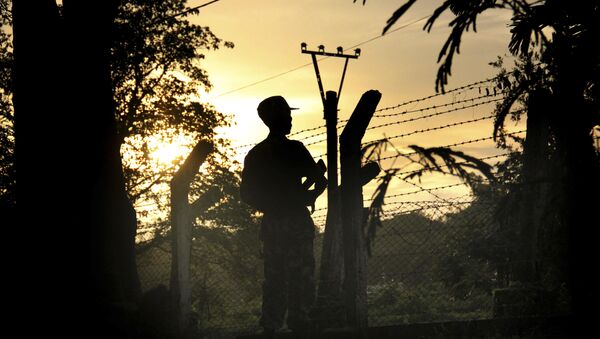The other three military officials are Deputy Commander-in-Chief Soe Win, Brigadier General Than Oo and Brigadier General Aung Aung. The restrictions include travel bans that extend to their immediate family members, Reuters reported.
"We remain concerned that the Burmese government has taken no actions to hold accountable those responsible for human rights violations and abuses, and there are continued reports of the Burmese military committing human rights violations and abuses throughout the country," US Secretary of State Mike Pompeo said in a statement Tuesday afternoon, noting the US was "the first government to publicly take action with respect to the most senior leadership of the Burmese military."
Burma was the country's name during the colonial era, and it retained the name for many years after becoming independent from the British Empire in 1948. While the military dictatorship that ruled the country changed its name in 1989 to Myanmar, many countries retain the older name because they do not recognize the authority or legitimacy of that government or the changes it has made.
NEW: Nearly 2yrs after Rohingya massacre, US sanctions top Myanmar general and 3 other key sr figures for their roles. @SecPompeo says US remains concerned over “severe lack of accountability” and “continued reports” of human rights abuses, but still makes no genocide designation pic.twitter.com/BKKG4aQbyK
— Conor Finnegan (@cjf39) July 16, 2019
Senior General Min Aung Hlaing has led the country's armed forces since 2011. While technically not a military dictatorship, the country's armed forces, known as the Tatmadaw, exert a powerful influence over Myanmar's politics. The Tatmadaw holds one-quarter of the seats in both houses of the Hluttaw, the country's bicameral legislature.
Hlaing has attracted international criticism for the Myanmar military's role in the conflict with the Rohingyas, a Muslim minority, in the country's western Rakhine state, where the Tatmadaw is accused of ethnic cleansing and crimes against humanity. An estimated 3,000 Rohingyas have been killed in Myanmar since the military began "clearance operations" in Rakhine, and and estimated 723,000 Rohingya refugees have fled across the western border into neighboring Bangladesh and India, according to the UN Refugee Agency (UNHCR).
Officials in the capital of Naypyidaw refuse to use the name "Rohingya," preferring to describe them as "Bengalis," and claiming they're not indigenous to Rakhine, but rather settlers from Bangladesh.


